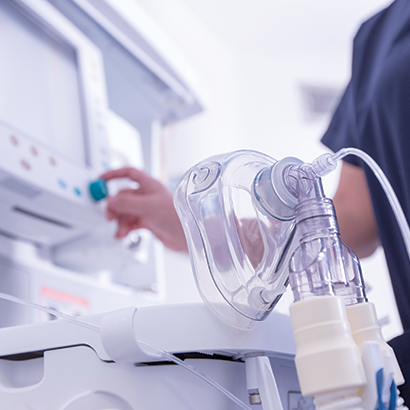
Pharmaceuticals, Biologics, and Medical Devices
Through our firm’s global platform, we have represented across practice areas a wide range of companies in the pharmaceutical, biologic, and medical device industries—including large U.S. and international pharmaceutical companies and their subsidiaries, startup and mature biopharmaceutical and biotechnology companies, large medical device manufacturers, as well as the various investors and academic and research institutions that interface with them.
Our capabilities span the entire spectrum of legal needs allowing us to provide integrated advice that results in efficiencies of both cost and precious management time. Underpinning our work is a deep understanding of the device and pharmaceutical markets from first-hand knowledge and in many instances in-house experience.
Our work includes matters involving:
- Transactions and strategic alliances
- Intellectual property
- Health care regulation and compliance
- Research and clinical trials
- Privacy and data monetization
- Food and Drug Administration
- Antitrust and competitor challenges
- Litigation and insurance coverage
- Export controls
- Foreign Corrupt Practices Act
- Patents and Hatch-Waxman cases
- Product liability
Our interdisciplinary team is a network of more than 100 lawyers experienced in solving the complex legal and regulatory issues facing pharmaceutical, biotechnology, health care, and medical device companies around the world. We apply cutting-edge technological and business savvy to these rapidly evolving sectors within the global health care industry.
We have structured some of the largest and most sophisticated drug development deals in the world. We negotiate technology transfers, research and development licenses, joint venture, and other collaborative arrangements, as well as marketing, supply, and distribution deals for clients across these industries. We help protect and enforce intellectual property rights worldwide using our technical training and experience in a wide variety of scientific disciplines. We understand the need for a close working relationship with our client’s management and scientific teams at all stages of research, development, licensing and marketing of their technology, products, and services. We frequently represent venture capital investors in evaluating the intellectual property of potential portfolio companies. Many of our lawyers have worked in clinical and research laboratories, hospitals, or in pharmaceutical and other health care companies and have an appreciation of the business dynamics that must be considered when developing workable solutions to complex business issues.
Additionally, we represent major universities, academic medical centers, and research institutions in connection with protection and licensing of intellectual property, Bayh-Dole issues, National Institute of Health and other federal grants, and Institutional Review Board research oversight. Our corporate and tax lawyers are experienced as to the issues surrounding formation of new research institutes, as well as state, municipal, and private bond offerings on behalf of educational institutions. We regularly represent technology companies who sponsor research at, or acquire technology from, academic and research institutions and government laboratories.
Lastly, our team is client-focused and practical in its approach. We strive to understand our clients’ goals so that we can efficiently tailor the use of our global platform to achieve those goals in a manner that addresses all relevant legal and regulatory issues.
Thought Leadership
On 30 January 2024, the US Citizenship and Immigration Services (USCIS) published a final rule (Final Rule) increasing the premium processing fee from US$2,500 to US$2,805, increasing filing fees for I-129 and I-140 employment-based petitions, and imposing a new Asylum Program Fee for each Form I-129 and I-140 filed by employers.
On 3 April 2024, the US Securities and Exchange Commission announced the first settlement with a stand-alone registered investment adviser for, among other things, failures to maintain and preserve certain electronic communications.
On 22 December 2020, the U.S. Securities and Exchange Commission (SEC) adopted amendments (the final rule) to Rule 206(4)-1 under the Investment Advisers Act of 1940 (the Advisers Act) to modernize the regulation of investment adviser advertising and solicitation practices.
On 7 March 2024, the Illinois Pollution Control Board proposed amendments to its Ground Water Quality regulations, which would set standards for selected per- and polyfluoroalkyl substances compounds at or near their levels of detection and would result in some of the most stringent standards in the country.

